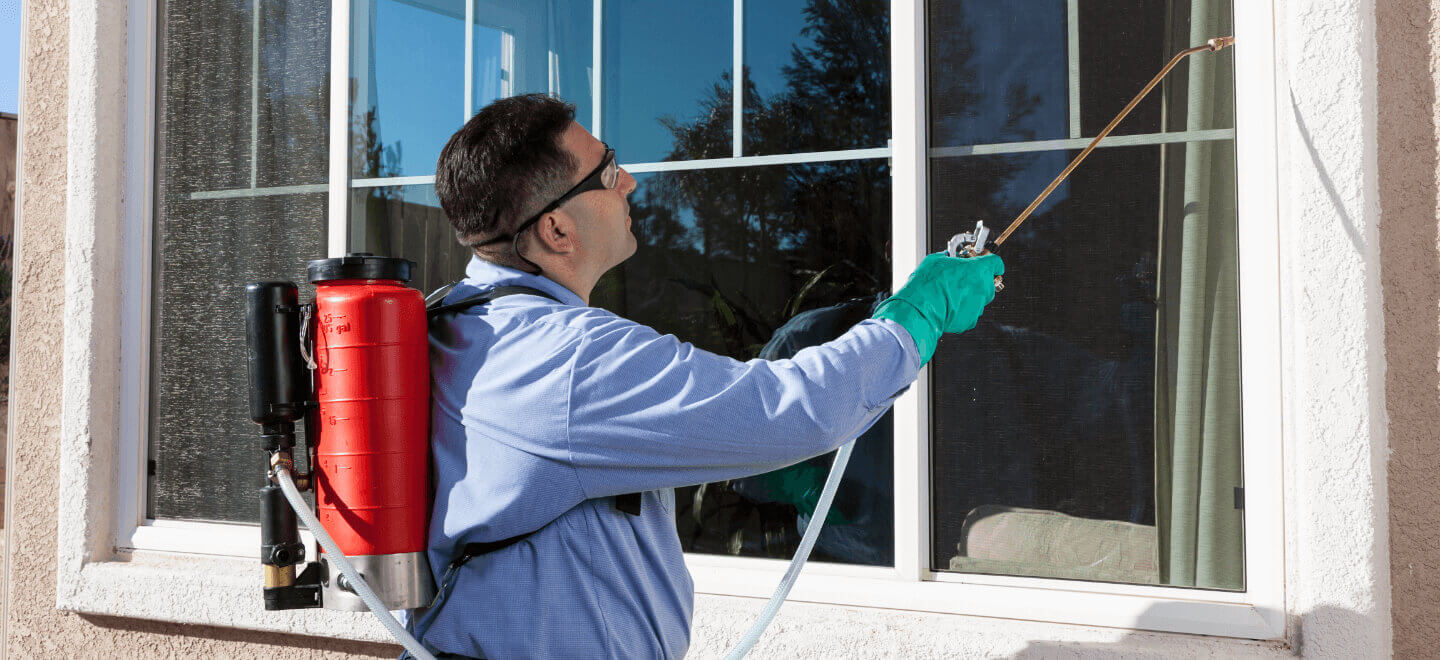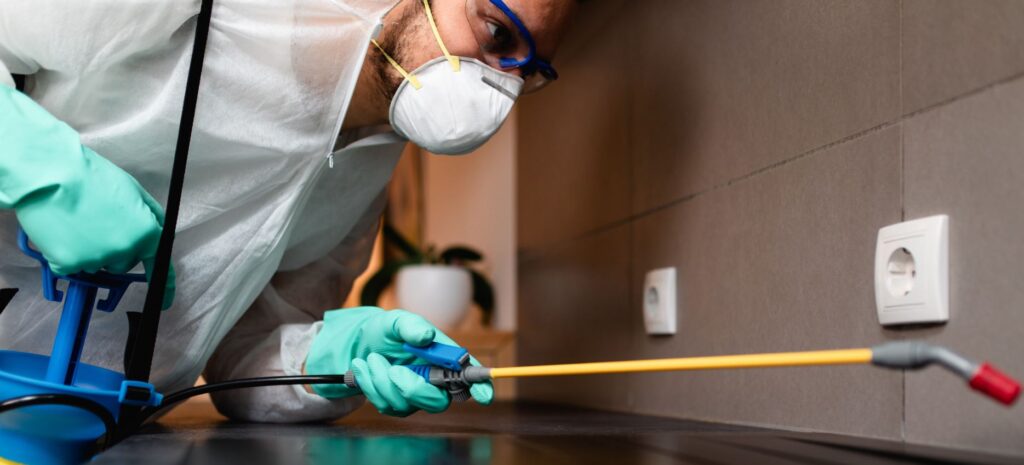Safe and Reputable Pest Control for Lasting Security
Reliable insect monitoring needs a diverse technique that balances environmental integrity with the need for effective parasite reductions. The subtleties of these approaches may not be promptly clear, triggering a better evaluation of the practices that can lead to lasting bug control results.
Comprehending Pest Control Methods
Parasite control includes a variety of methods intended at handling and eliminating undesirable bugs and rodents that can intimidate both health and wellness and property. Recognizing these techniques is important for efficient insect management.
The primary categories of parasite control approaches consist of mechanical, organic, and chemical techniques. Mechanical techniques entail physical barriers and traps to avoid insect entrance and capture unwanted species. Utilizing displays on home windows or employing sticky catches can considerably decrease parasite populations without introducing hazardous materials - exterminator coquitlam.

Chemical bug control is typically the most acknowledged technique, utilizing chemicals to remove insects. These chemicals can be reliable yet must be used with caution to avoid adverse results on non-target varieties and the setting.
Advantages of Eco-Friendly Solutions
Just how can environmentally friendly options change bug control methods? The fostering of environmentally friendly insect control methods offers numerous benefits, considerably improving the efficiency and security of bug management (exterminator coquitlam). These solutions make use of all-natural ingredients, lowering the reliance on dangerous chemicals that can pose risks to human wellness and the atmosphere. This shift not just shields households and animals yet likewise minimizes the possibility for dirt and water contamination.

Another advantage is the favorable effect on regional biodiversity. Green solutions are created to target details insects while protecting valuable insects and wildlife, promoting a well balanced ecological community. This approach aligns with the expanding customer demand for lasting techniques, enhancing the credibility of bug control providers.
Integrated Pest Administration Approaches
The implementation of green remedies normally leads to the adoption of Integrated Insect Management (IPM) techniques, which even more improve insect control effectiveness. IPM is a holistic strategy that incorporates numerous methods to take care of parasite populaces while lessening environmental impact. This technique emphasizes the use of organic, social, mechanical, and chemical controls, making certain a sustainable and well balanced approach of bug administration.
One fundamental facet of IPM is the detailed analysis of bug activity and ecological problems. By keeping an eye on insect populations and recognizing their life process, professionals can execute targeted interventions that interfere with the bug's habitat or lifecycle, lowering dependence on chemical pesticides. In addition, social methods such as crop rotation and environment adjustment can substantially decrease pest facility and recreation.
One more essential component is using biological control representatives, such as valuable insects or microorganisms, which can naturally reduce insect populations. When chemical applications are essential, IPM focuses on making use of low-risk chemicals and applies them selectively, minimizing direct exposure to non-target organisms and humans.
Incorporating IPM approaches not just enhances bug control efficiency yet additionally advertises a much safer environment, lining up with the expanding demand for sustainable practices in bug monitoring.
Safe Practices for Home Owners
Recognizing the relevance of safe techniques in insect control can encourage homeowners to successfully manage insect concerns while protecting their health and the atmosphere. Applying non-toxic techniques and safety nets is vital in lessening exposure to dangerous chemicals.
House owners need to first assess their setting for problems that bring in insects, such as standing food, water, and clutter waste. On a regular pop over here basis cleaning and securing entrance points can deter parasites from getting into the home. Making use of natural deterrents, such as vital oils or diatomaceous earth, can offer reliable alternatives to chemical pesticides.
When chemical treatments are essential, home owners need to decide for items that are specifically identified as secure for domestic usage. It is important to comply with application standards thoroughly to stay clear of too much exposure. Utilizing targeted treatments in areas where bugs are recognized, rather than covering spraying, can substantially decrease chemical usage.
Last but not least, maintaining open interaction with bug control professionals is essential. Home owners should ask about the safety of products used and request eco-friendly options whenever feasible. By adopting these secure techniques, home owners can produce a healthier living atmosphere while properly taking care of parasite issues.

Tips for Long-Term Defense
Establishing a parasite management technique that stresses long-term security can greatly enhance the performance of the safe methods formerly discussed. To achieve this, property owners need to apply regular assessments of their residential property, concentrating on hidden areas such as attics, cellars, and crawl spaces. Early detection of pest activity is important in stopping invasions from taking hold.
Furthermore, maintaining a clean atmosphere is important. This includes correct food storage space, promptly cleansing spills, and routinely getting rid of garbage. These practices lower attractants that attract pests into the home. Sealing access points, such as fractures around doors and home windows, can effectively obstruct prospective insect gain access to.
Landscape design needs to additionally be thought about; keeping plants cut and preserving a range between plant life and the home lessens hiding areas for insects. Utilizing natural deterrents, such as vital oils or diatomaceous planet, can additionally inhibit infestations without considering severe chemicals.
Finally, teaming up with a professional bug control solution for periodic assessments can supply an added layer of safety. These specialists can offer tailored recommendations and advanced treatments, guaranteeing that your home continues to be protected against insects in the long-term.
Verdict
Finally, safe and trusted pest control requires a sites complex strategy that emphasizes green approaches and incorporated parasite management. By applying natural deterrents, performing regular evaluations, and preserving appropriate cleanliness, residential or commercial property owners can substantially lower pest populaces while safeguarding helpful insects and the setting. Partnership with expert insect control services boosts the efficiency of these strategies, making sure tailored solutions that give long-term defense and tranquility of mind versus future infestations.
Effective bug administration requires a multifaceted approach that stabilizes eco-friendly stability with the demand for efficient insect suppression. The fostering of environment-friendly pest control techniques offers many advantages, dramatically boosting the effectiveness and safety of insect administration.The application of environment-friendly solutions normally leads to the fostering of Integrated Insect Monitoring (IPM) methods, which further improve bug control effectiveness. exterminator coquitlam. By keeping track of bug populations and determining their life cycles, professionals can execute targeted treatments that disrupt the bug's habitat or lifecycle, minimizing dependence on chemical pesticides.In final thought, useful content trusted and safe pest control calls for a diverse strategy that highlights environment-friendly methods and incorporated bug monitoring